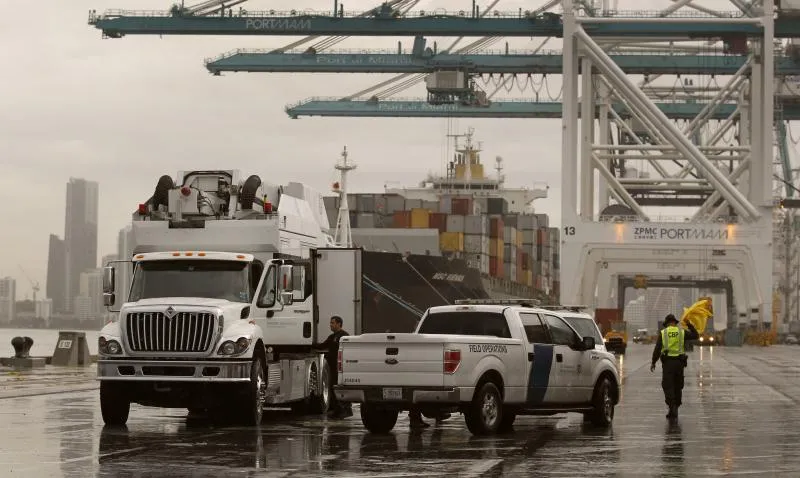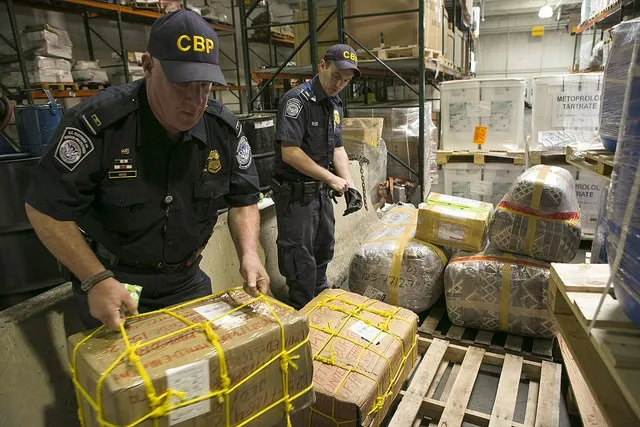Author: Acting Commissioner Kevin K. McAleenan
When imported merchandise is sold in the United States at a less than fair value, that’s called “dumping,” and it can have severe impacts on domestic producers and manufacturers. To prevent dumping, duty rates are assigned by the Department of Commerce to ensure that trade in certain goods is fair and equitable. As the agency responsible for collecting antidumping duties from companies who do this, U.S. Customs and Border Protection (CBP) is at the forefront of holding importers who sidestep their legal obligations to pay these duties accountable—helping to ensure a level playing field for American companies and American workers.

officer, right, shakes off his rain coat as
he and a fellow officer wrap up scanning
of shipping containers as they inspect
incoming cargo at the Port of Miami.
Photo Credit: Glenn Fawcett
In August, CBP concluded its first Enforce and Protect Act (EAPA) investigation, a new process commissioned under the Trade Facilitation and Enforcement Act (TFTEA). CBP held Eastern Trading, an importer of wire hangers, accountable for evading antidumping duties. The importer claimed the wire hangers it was importing were manufactured in Thailand, but following CBP’s review, it was determined that the wire hangers had been transshipped from China through Thailand in order to conceal their true origin.
CBP is able to protect American businesses thanks to the help of our strong partnership with our trade stakeholders and other federal government agencies who use our e-allegations online portal to submit allegations of duty evasion. With our EAPA investigative authorities, CBP is able to review allegations of evasion and protect key segments of the U.S. economy.
Following the success of our initial investigation, the only remaining U.S. manufacturer of wire hangers—M&B Metal Products Company—filed eight additional allegations of evasion of wire hangers suspected of being routed through Malaysia to avoid antidumping duties. In August, CBP also issued a decision on interim measures in a similar duty evasion investigation of an importer of wooden bedroom furniture. The final determination for all of these investigations are expected next March, unless the investigations are extended. In the meantime, we have implemented interim measures to protect the revenue while the investigations proceed.

the Port of Philadelphia. Photo Credit:
James Tourtellotte
These complex, coordinated evasion schemes are bad for U.S. business and ultimately bad for our economy. Our investigations involving wire hangers alone have prevented the evasion of more than $33 million in unpaid antidumping duties annually.
If you suspect an importer of duty evasion, I encourage you to submit an allegation through our online portal. Our trade specialists and subject matter experts will review each allegation carefully and have already initiated 14 investigations since the regulations to implement EAPA took effect only one year ago.
I commend the CBP Office of Trade on these successful actions. We will continue to work closely with other government agencies and foreign governments to make sure the global supply chain is strong, secure, and transparent and we remain steadfast in our commitment to our trade enforcement mission.

